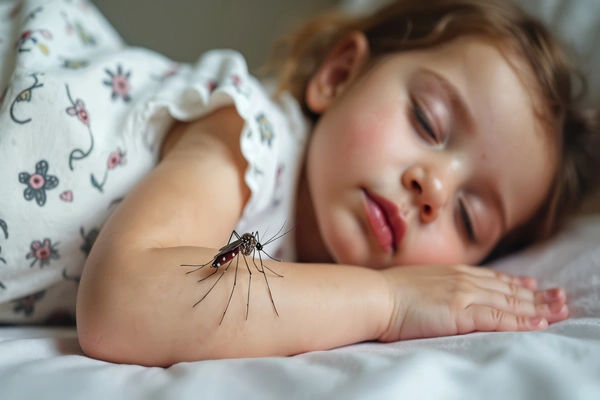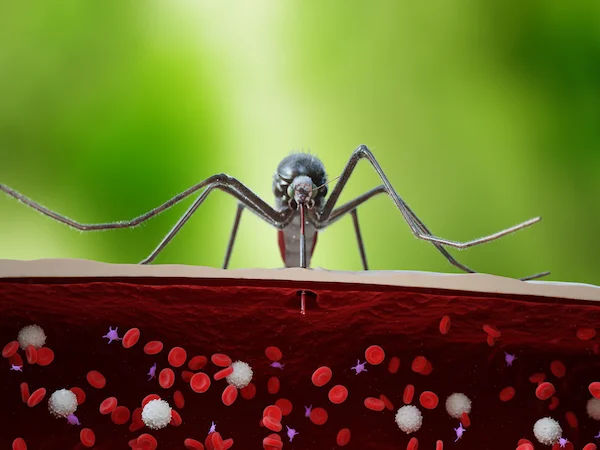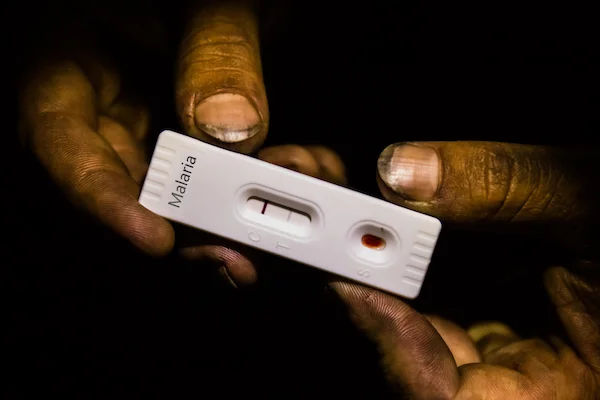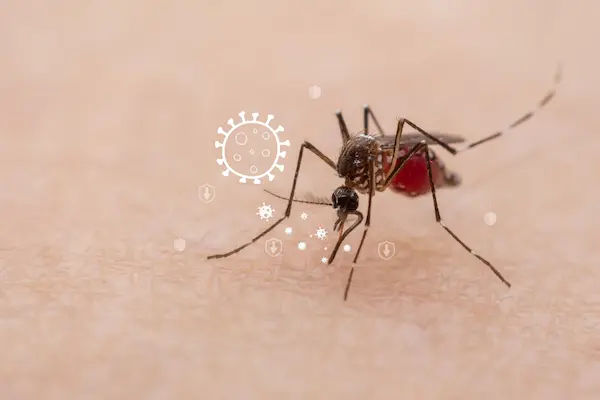Your Malaria Guide Could Actually Make You Vulnerable
Learn about the devastating effects of malaria on your body and how it can weaken your immune system. Our comprehensive guide explains the symptoms, risks, and prevention strategies to help you stay protected from this life-threatening disease.


When planning a trip to a malaria-prone region, your first instinct is to seek information. You scour the web, read travel blogs, and download government health guides. You feel prepared. But what if the very advice you're relying on is incomplete, outdated, or misinterpreted? This false sense of security can be dangerously misleading. Relying on a generic or poorly researched guide to malaria can create critical gaps in your defense, ultimately making you vulnerable to infection. This article delves into the common pitfalls of standard malaria advice, identifies where these guides fall short, and provides a robust, multilayered strategy to ensure you are truly protected. We'll move beyond the basic checklist and empower you with the nuanced understanding needed to stay safe.
Quick Takeaways. Protecting Yourself from Flawed Advice
Generic advice often ignores regional variations in malaria parasite strains and mosquito resistance patterns.
Overreliance on any single prevention method (like just pills or just bug spray) is a high risk strategy.
The timing and consistency of antimalarial medication are more critical than most guides emphasize.
Symptom knowledge must include the "atypical" presentations to ensure early diagnosis.Your personal health factors (pregnancy, age, medical history) drastically change the prevention protocol.
Why a Standard Malaria Guide Might Be Your Biggest Risk?
Most well-intentioned malaria guides offer a one-size-fits-all approach. They list common prevention methods—antimalarial drugs, insect repellent, bed nets—but often fail to stress the interdependence and absolute necessity of each layer. This creates a checkbox mentality where a traveler might think taking pills absolves them from avoiding bites, or that a net alone is sufficient protection. The reality is that malaria prophylaxis is a system where if one layer fails, the others must hold. A superficial guide doesn't communicate this systemic risk, fostering complacency instead of vigilant, multifaceted protection. This complacency is the vulnerability.
The Pitfalls of Generic Antimalarial Advice
Choosing the right antimalarial medication is not a simple decision. A basic guide might list options like Doxycycline, Malarone, or Mefloquine, but it won't cover the crucial details that determine their effectiveness for you.
Regional Drug Resistance. The most critical factor. Certain strains of malaria, particularly P. falciparum in parts of Southeast Asia and Africa, have developed resistance to common drugs like Chloroquine. A guide that doesn't specify this or direct you to update resistance maps is worse than useless—it's hazardous.
Individual Health Profile. Your age, pregnancy status, psychiatric history, and other medications dictate the safest choice. Mefloquine, for instance, is not recommended for individuals with a history of depression or anxiety. A generic guide cannot provide this personalized medical counsel.
Dosage and Duration. Perhaps the biggest pitfall. Medications must be started before exposure, taken with religious consistency during exposure, and continued for a precise period after leaving the risk area. Stopping pills early because you "feel fine" is a common, yet catastrophic, error that leaves you unprotected as the parasites incubate.
Consult a General Physician for the best advice
The Misconceptions of "Complete" Bite Prevention
Many guides treat bite prevention as a simple afterthought. The advice "use repellent" is not enough. True bite avoidance requires a meticulous strategy that most resources gloss over.
DEET Concentration Matters. A guide suggesting "insect repellent" without specifying a minimum 2030% DEET concentration (or a recommended alternative like Picaridin 20%) leaves you underprotected.
Treating Clothing is NonNegotiable. Mosquitoes can bite through thin clothing. Permethrin treatment for travel gear, clothing, and bed nets is a highly effective barrier that most guides only mention in passing, if at all. This is a major prevention gap.
Behavioral Timing. Anopheles mosquitoes, which carry malaria, are most active from dusk to dawn. A guide that doesn't stress altering evening activities and remaining extra vigilant during these hours misses a key behavioral intervention.
Beyond the Basics. Advanced Layers of Protection
To truly avoid vulnerability, you must adopt strategies often omitted from standard lists. This involves understanding the enemy and using every tool at your disposal.
Environmental and Behavioral Strategies
Your surroundings and habits are your first line of defense.
Accommodation Choice. Whenever possible, choose airconditioned or wellscreened lodging. If that's not available, ensure your bed has an intact, properly tucked-in insecticide-treated net (ITN).
Evening Attire. Wear long sleeve shirts, long pants, socks, and closed toe shoes during peak biting hours. Lightcolored clothing is less attractive to mosquitoes than dark colors.
Avoiding Scents. Heavily perfumed soaps, lotions, and detergents can attract mosquitoes. Opt for unscented products during your travel.
The Critical Role of PostTravel Vigilance
Your risk doesn't end when your plane lands back home. A flawed guide might imply it does.
Understanding Incubation. Malaria symptoms can appear as late as a year after exposure, though typically within 7-30 days. This is why completing your antimalarial medication course is essential.
Informing Healthcare Providers. This is the most overlooked step. If you develop a fever or flulike illness within a year of travel, you must immediately tell your doctor your travel history. Malaria is a medical emergency and can be rapidly fatal if misdiagnosed as the flu. This is a core component of malaria risk management.
Recognizing Symptoms. Why Typical Guides Fall Short
Many guides list "fever and chills" as the primary symptoms. While classic, this is incomplete. Atypical malaria symptoms can delay diagnosis.
Less Common Presentations. Malaria can initially present with diarrhea, headache, muscle aches, fatigue, and confusion, especially in children or semiimmune adults.
The Cyclical Pattern. The classic cyclical fever (every 48 or 72 hours) is not always present, particularly in the early stages or with P. falciparum infections.
This knowledge gap can make you vulnerable to dismissing early signs. Any fever after travel to a risk zone is malaria until proven otherwise.
Creating Your Personalized, VulnerabilityProof Plan
A truly effective plan is not found in a single article; it's built through a process.
1. Consult a Travel Medicine Specialist. This is nonnegotiable. At least 46 weeks before travel, see a doctor who specializes in travel medicine. They access realtime data on resistance and can personalize your prescription.
2. CrossReference Official Sources. Use your doctor's advice as a base, but also check the CDC Travel Health Notices and the WHO International Travel and Health guidelines for your specific destination.
3. Invest in Quality Gear. Don't skimp on a highDEET repellent, permethrin spray for your clothing, and a quality bed net.
4. Plan for Compliance. Set phone alarms for your medication. Understand the side effects so you're prepared and don't stop taking them unexpectedly.
5. Educate Your Travel Companions. Ensure everyone in your group understands the plan and the seriousness of the protocols.
Conclusion. From Vulnerable to Vigilant
A generic guide to malaria provides a foundation, but it is only a starting point. True safety lies in understanding its limitations and building a personalized, multilayered defense strategy. The risk of vulnerability comes from complacency—from checking boxes without understanding the "why" behind each action. By moving beyond basic advice, consulting a specialist, and adopting a vigilant, proactive approach, you transform a standard plan into a robust shield. Remember, malaria is a preventable disease. The power to avoid it lies not in blindly following a list, but in becoming an informed, engaged, and meticulous participant in your own health. Schedule that appointment with a travel clinic today—it's the most important step you will take.
Consult a General Physician
Consult a General Physician for the best advice

Dr. Rajib Ghose
General Physician/ Internal Medicine Specialist
25 Years • MBBS
East Midnapore
VIVEKANANDA SEBA SADAN, East Midnapore

Dr. Mainak Baksi
General Practitioner
13 Years • MBBS , MD (MPH)
Howrah
Mainak Baksi Clinic, Howrah
(50+ Patients)

Dr. Anindita Mondal
General Physician/ Internal Medicine Specialist
8 Years • MBBS
Kolkata
VDC Clinic, Kolkata

Dr. Ishita Mandal
General Surgeon
7 Years • MBBS(hons.), MS(general surgery), General and laparoscopic surgeon
Kolkata
VDC Clinic, Kolkata

Dr. Ankitha
Internal Medicine Specialist Diabetologist
6 Years • MD INTERNAL MEDICINE
Bengaluru
Apollo Medical Center, Marathahalli, Bengaluru
(25+ Patients)
Consult a General Physician

Dr. Rajib Ghose
General Physician/ Internal Medicine Specialist
25 Years • MBBS
East Midnapore
VIVEKANANDA SEBA SADAN, East Midnapore

Dr. Mainak Baksi
General Practitioner
13 Years • MBBS , MD (MPH)
Howrah
Mainak Baksi Clinic, Howrah
(50+ Patients)

Dr. Anindita Mondal
General Physician/ Internal Medicine Specialist
8 Years • MBBS
Kolkata
VDC Clinic, Kolkata

Dr. Ishita Mandal
General Surgeon
7 Years • MBBS(hons.), MS(general surgery), General and laparoscopic surgeon
Kolkata
VDC Clinic, Kolkata

Dr. Ankitha
Internal Medicine Specialist Diabetologist
6 Years • MD INTERNAL MEDICINE
Bengaluru
Apollo Medical Center, Marathahalli, Bengaluru
(25+ Patients)
More articles from Malaria
Frequently Asked Questions
Q1. I'm only traveling for a short weekend trip to a malaria area. Do I still need pills?
Yes, absolutely. The risk of infection is not determined by the length of your stay, but by the presence of infected mosquitoes. A single bite is all it takes. Always follow the medical advice for that specific region, regardless of trip duration.
Q2. Are natural repellents like citronella or vitamin B patches effective against malaria mosquitoes?
No. While they may offer minimal protection against nuisance mosquitoes, they are not proven effective against the Anopheles mosquito that carries malaria. Relying on them significantly increases your vulnerability. Always use an EPAregistered repellent like DEET or Picaridin.
Q3. I took my antimalarial medication perfectly but still got bitten a lot. Did the pills fail?
The pills are your last line of defense, not your first. Their job is to kill the parasite if it enters your bloodstream from a bite. Bite prevention (repellent, nets, clothing) is your primary barrier. You should still report the bites and any potential symptoms to your doctor.
Q4. What is the single biggest mistake travelers make that leaves them vulnerable?
The most common and dangerous mistake is stopping the antimalarial medication too soon after returning home. The parasites may still be incubating, and stopping the pills allows them to multiply and cause disease.
Q5. If I had malaria once, am I now immune?
Not necessarily. Some people develop partial immunity after multiple infections, but it is specific to the malaria strain and wanes over time without continued exposure. You should never rely on assumed immunity for protection.




